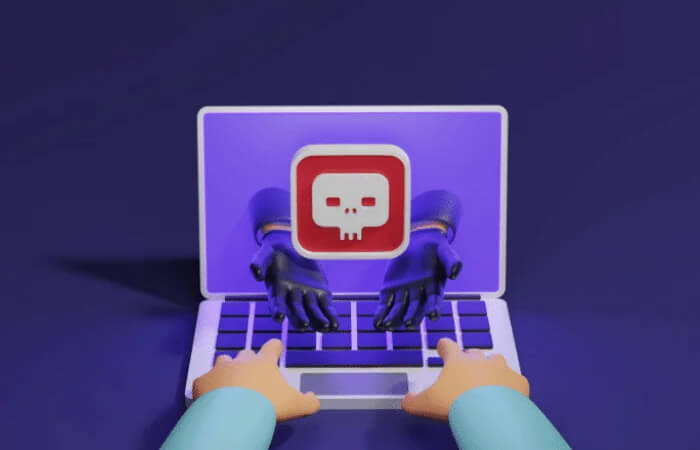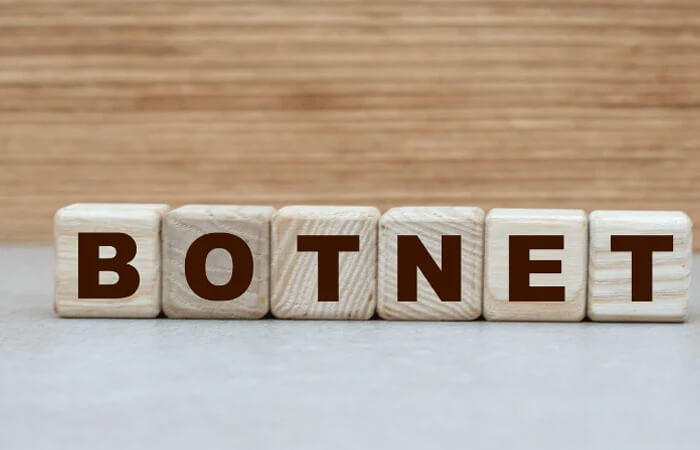
Spyware, isminden de anlaşılacağı gibi, bizi izleyen ve gizlice bilgilerimizi toplayan bir tür casus yazılımdır.
Günümüzde teknolojinin hızlı ilerlemesiyle birlikte dijital dünya hayatımızın merkezine yerleşti. İnternet kullanımı yaygınlaşırken, kişisel verilerimizin güvenliği de önemli bir konu haline geldi. Bu noktada karşımıza çıkan en büyük tehditlerden biri de spyware‘dir. Spyware, gizlice bilgisayarlarımıza, akıllı telefonlarımıza veya diğer dijital cihazlarımıza sızan zararlı yazılımlardır.
Casus yazılımlar (Spyware’ler) internet üzerinde gezinirken veya bazı uygulamaları indirirken farkında olmadan bilgisayarımıza bulaşabilir. Bir kez sistemimize girdikten sonra, kullanıcı aktivitelerimizi, gezinti alışkanlıklarımızı, klavye girdilerimizi ve hatta kişisel verilerimizi takip eder. Bu bilgiler daha sonra izinsiz olarak pazarlanabilir, kötü niyetli kişilerin eline geçebilir ve çeşitli suçlara yol açabilir.
Spyware Nasıl Çalışır?
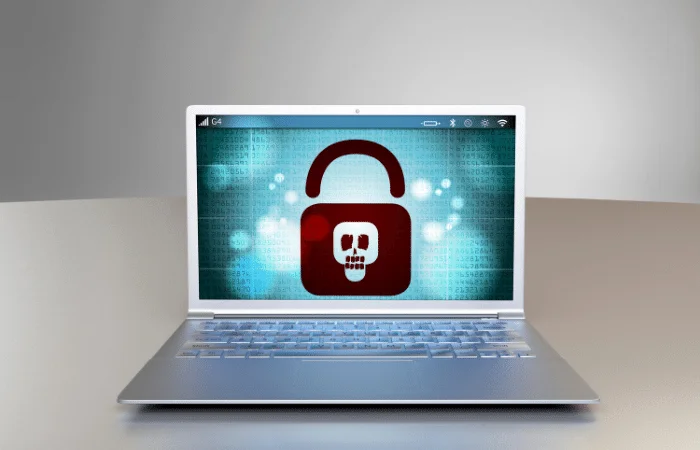
Spyware genellikle kullanıcının farkında olmadığı şekillerde sisteme bulaşır. Bunun için yaygın yöntemler arasında yanlışlıkla indirilen dosyalar, güvenilmeyen web siteleri veya spam e-postalar yer alır. Bir kez sisteme girdiğinde, spyware kendini gizlemek ve çalışmak için çeşitli teknikler kullanır.
Spyware, bilgisayarın sistem kaynaklarını kullanarak sürekli çalışır ve arka planda faaliyet gösterir. Genellikle kullanıcının bilgisi veya izni olmadan otomatik olarak başlatılır ve gizlice çalışır. Bu, kullanıcının spyware’in varlığından haberdar olmadığı anlamına gelir.
Spyware, izleme ve bilgi toplama amacıyla çeşitli yöntemler kullanır. Öncelikle, kullanıcının internet gezinti alışkanlıklarını izler ve ziyaret edilen web sitelerini kaydeder. Bunu yaparken, kullanıcının tıkladığı bağlantılar, ziyaret ettiği sayfalar ve hatta klavye girdileri gibi bilgileri toplayabilir. Bu sayede, kullanıcının ilgi alanları, alışveriş alışkanlıkları veya diğer kişisel tercihleri hakkında bilgi elde edilir.
Spyware, kişisel verileri toplamanın yanı sıra, bazen kullanıcının bilgilerini kötüye kullanmak için de programlanabilir. Örneğin, finansal bilgileri, kullanıcı adları ve şifreleri ele geçirerek kimlik hırsızlığına yol açabilir veya bu bilgileri kötü amaçlı kişilere satılabilir.
Spyware ayrıca reklamcılık amacıyla da kullanılabilir. Kullanıcının gezinti alışkanlıklarına göre özelleştirilmiş reklamlar göstererek gelir elde edilebilir. Bu durumda, kullanıcı rahatsız edici pop-uplar, bannerlar veya istenmeyen reklamlarla karşılaşabilir.
Spyware Türleri Nelerdir?
- Keylogger: Bu spyware türü, kullanıcının klavye girdilerini kaydederek izler. Kullanıcının yazdığı her şeyi kaydeder, bu da şifreler, kullanıcı adları, kredi kartı bilgileri gibi hassas bilgilerin ele geçirilmesine yol açabilir.
- Adware: Adware, genellikle reklam amaçlı kullanılan bir spyware türüdür. Kullanıcının internet gezintisi sırasında rahatsız edici reklamlar gösterir ve kullanıcının tercihlerini izleyerek kişiselleştirilmiş reklamlar sunar.
- Trojanlar:Trojanlar, zararlı yazılımın zararsız veya yararlı bir uygulama veya dosyanın içine gizlendiği bir tür spyware’dir. Kullanıcının bilgilerini izlerken aynı zamanda sistemde geri kapılar açabilir ve kötü amaçlı saldırılara zemin hazırlayabilir.
- Rootkitler: Rootkitler, bilgisayar sistemine derinlemesine sızarak kullanıcının aktivitelerini ve bilgilerini izlemek için gelişmiş teknikler kullanır. Bu spyware türü, gizlenmek için sistem düzeyinde erişim sağlar ve tespit edilmesi ve kaldırılması zor olabilir.
- Browser Hijacker: Browser hijacker, tarayıcı ayarlarını izinsiz olarak değiştirerek kullanıcıyı istenmeyen web sitelerine yönlendirir. Ayrıca kullanıcının arama sonuçlarını manipüle edebilir ve kişisel verileri izleyebilir.
- Ransomware:Ransomware, bilgisayarı veya dosyaları şifreleyerek kullanıcının erişimini engeller ve fidye talep eder. Bu tür spyware, kullanıcının kişisel bilgilerini ele geçirmek veya kullanıcıyı finansal olarak zarara uğratmak amacıyla kullanılabilir.
- Remote Access Trojan (RAT): Remote Access Trojan, uzaktan erişim için tasarlanmış bir spyware türüdür. Bu tür spyware, bilgisayarınıza sızdıktan sonra kötü niyetli bir saldırganın uzaktan kontrol edebilmesini sağlar. Saldırgan, kullanıcının ekranını görüntüleyebilir, klavye girişlerini izleyebilir, dosyaları çalabilir ve hatta kamera veya mikrofon gibi donanımı kontrol edebilir. RAT’lar genellikle hedefin bilgisayarına izinsiz erişim sağlayarak kullanıcının gizliliğini ihlal etmek ve bilgilerini çalmak amacıyla kullanılır.
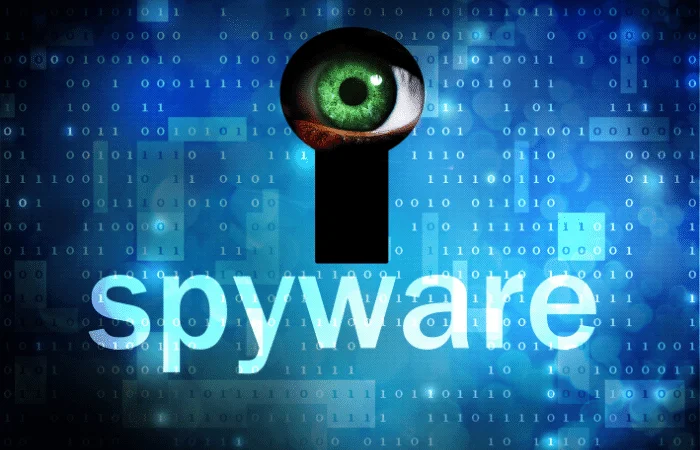
Spyware Nasıl Bulaşır?
Spyware, bilgisayarlarımıza veya diğer dijital cihazlarımıza çeşitli yollarla bulaşabilir. Saldırganlar, kullanıcıların güvenlik zafiyetlerinden yararlanarak veya yanıltıcı taktikler kullanarak spyware’i hedef sistemlere enjekte eder. İşte spyware’in bulaşma yöntemlerine dair daha ayrıntılı bir açıklama:
- Yanıltıcı indirmeler: Spyware, kullanıcıları yanıltmak için genellikle yanlışlıkla indirilen dosyalar veya yazılımlar aracılığıyla yayılır. Örneğin, kullanıcılar güvenilir bir web sitesinden indirme yaparken, yanlış bir bağlantıyı veya yanlış bir düğmeyi tıkladığında spyware bulaşabilir. Saldırganlar, indirme düğmelerine veya reklamlara gizlenmiş kötü niyetli dosyaları sunarak kullanıcıları yanıltır.
- E-posta ve spam: Spam e-postalar, kullanıcılara zararlı ekler veya bağlantılar içerebilir. Kötü niyetli bir e-postayı açtığınızda veya ekini indirdiğinizde, spyware bilgisayarınıza bulaşabilir. Saldırganlar, güvenilir veya tanıdık bir kaynak gibi görünen e-postalar göndererek kullanıcıları kandırmaya çalışır.
- Güvenlik açıkları ve exploitler: Spyware, bilgisayarların veya yazılımların güvenlik açıklarından yararlanarak bulaşabilir. Birçok insan, yazılımlarını ve işletim sistemlerini güncelleme konusunda ihmal edebilir. Saldırganlar, güvenlik açığı olan bir yazılım veya işletim sistemini hedef alarak, bu açıktan faydalanarak spyware’i sisteme enjekte edebilir.
- Drive-by İndirmeler: Bu yöntemde, kullanıcının bir web sitesini ziyaret etmesi yeterlidir. Kötü amaçlı bir web sitesi, ziyaretçinin farkında olmadan spyware’i otomatik olarak indirebilir ve yükleyebilir. Bu tür saldırılar, web sitesinin güvenlik açıklarından veya yanıltıcı kodlardan yararlanarak gerçekleştirilebilir.
- Sosyal mühendislik:Sosyal mühendislik taktikleri, kullanıcıların güvenini kazanarak spyware’in bulaşmasını hedefler. Örneğin, kullanıcılara güvenilir bir kişi veya kuruluş gibi davranarak, yanıltıcı bağlantılar veya ekler aracılığıyla spyware’i enjekte edebilirler.
Spyware Nasıl Tespit Edilir?
Spyware’ler genellikle sessizce çalışır ve kullanıcıya fark ettirmeden bilgi toplamaya devam ederler. Bununla birlikte, aşağıda belirtilen yöntemlerle spyware’lerin varlığını tespit etmek mümkündür:
- Güvenilir Antivirüs Yazılımı: Güncel ve iyi bir antivirüs yazılımı kullanmak, spyware tespiti için en önemli adımdır. Güvenilir bir antivirüs programı, bilgisayarınızdaki potansiyel tehlikeleri tespit edebilir ve sizi uyarmak için sizi bilgilendirebilir. Antivirüs yazılımınızı düzenli olarak güncellemek ve tam sistem taraması yapmak önemlidir.
- Anormal Sistem Davranışı: Spyware sıklıkla bilgisayarın normal çalışmasını etkiler. Bilgisayarınızın beklenmedik yavaşlamalar, donmalar veya çökme yaşaması gibi anormal davranışlar sergilemesi, sisteminize spyware bulaşmış olabileceğini gösterebilir.
- İstenmeyen Pop-up Reklamlar: Spyware genellikle tarayıcınızın ayarlarını değiştirir ve istenmeyen reklamların, açılır pencerelerin veya yönlendirmelerin sürekli olarak görünmesine neden olabilir. Bu tür reklamlar, sisteminize bulaşmış olabilecek bir spyware belirtisi olabilir.
- İnternet Veri Kullanımında Anormal Artış: Spyware, bilgisayarınızdan bilgi toplamak için sürekli olarak internet bağlantısını kullanır. Eğer internet veri kullanımında belirgin bir artış fark ederseniz, bilgisayarınızda spyware olabileceği düşünülebilir.
- Bilinmeyen Programlar veya Araç Çubukları: Spyware genellikle bilgisayarınıza bilinmeyen programlar veya tarayıcı araç çubukları şeklinde bulaşır. Bilgisayarınızdaki program listesini ve tarayıcınızdaki eklentileri düzenli olarak kontrol etmek, potansiyel spyware’leri tespit etmek için faydalı olabilir.

Spyware Nasıl Temizlenir?
- Malware Taraması Yapın: Antivirüs programı yetersiz kaldığında veya bazı spyware’lar algılanamadığında, ek bir malware taraması yapmak önemlidir. Güvenilir bir anti-malware programı indirin ve bilgisayarınızı taramak için kullanın (https://www.virustotal.com
https://transparencyreport.google.com/safe-browsing/search ). Bu programlar genellikle daha kapsamlı bir tarama yapabilir ve spyware’ları tespit edebilir.
- Tarayıcıları Sıfırlayın: Spyware genellikle tarayıcı (Google Chrome, Mozilla Firefox, Microsoft Edge, Safari, Opera) eklentileri ve kötü niyetli uzantılar aracılığıyla bulaşır. Tarayıcınızın ayarlarını sıfırlamak, spyware’ı temizlemenize yardımcı olabilir. Tarayıcınızdaki tüm eklentileri, uzantıları ve araç çubuklarını kontrol edin ve güvendiğiniz olmayanları kaldırın.
- Güncellemeleri Kontrol Edin: Bilgisayarınızdaki işletim sistemi, tarayıcılar ve diğer yazılımlarınızın güncellemelerini kontrol edin ve güncelleyin. Güncellemeler genellikle güvenlik açıklarını kapatır ve zararlı yazılımlara karşı daha güvenli bir sistem sağlar.
Antivirüs programları, güncellemeleri otomatik olarak yapabilme özelliğine sahiptir ve bu özellik genellikle varsayılan olarak etkindir. Bu nedenle, kullanıcıların antivirüs programlarını güncellemeleri için otomatik modda bırakmaları önemlidir. Bununla birlikte, aynı şekilde işletim sistemi ve tarayıcılar da güvenlik açıklarını kapatmak için düzenli olarak güncellenmelidir.
İşletim sistemi (Windows, macOS, Linux vb.) ve tarayıcılar (Google Chrome, Mozilla Firefox, Microsoft Edge, Apple Safari vb.) genellikle otomatik güncelleme seçenekleri sunar. Bu seçenekleri etkinleştirerek, güncellemelerin otomatik olarak indirilip yüklenmesini sağlayabilirsiniz. Bu sayede, güncellemeleri takip etme zorunluluğunu ortadan kaldırarak sisteminizi güncel ve güvende tutarsınız.
- İndirilen Dosyaları Kontrol Edin:İndirilen Dosyaları Kontrol Edin: İndirdiğiniz dosyaları dikkatlice kontrol edin. Güvendiğiniz kaynaklardan olmayan veya şüpheli görünen dosyaları açmayın veya yüklemeyin. Spyware sıklıkla yanlışlıkla indirilen dosyalar aracılığıyla yayılır. Bu nedenle, dosyaları indirmeden önce mutlaka virüs taramasından geçirmeyi öneriyoruz. Güvenmediğiniz veya şüpheli görünen dosyalar için online dosya tarama sitelerini kullanarak kontrol edebilirsiniz. Bu siteler, dosyaları birden fazla antivirüs motoruyla tarayarak potansiyel tehditleri tespit etmek için kullanılır. Güvendiğiniz kaynaklardan olmadığına emin olduğunuz dosyaları açmadan önce mutlaka bu adımları takip etmeniz önemlidir.
- Sistem Geri Yükleme Noktalarını Kullanın: Eğer bilgisayarınızda sistem geri yükleme özelliği etkinse, spyware’ın bulaştığı bir noktaya geri dönebilir ve temiz bir sisteme geri yükleyebilirsiniz.
- Tarayıcı Çerezlerini Temizleyin: Tarayıcı çerezleri, spyware’ın kişisel verilerinizi izlemesine yardımcı olabilir. Tarayıcı ayarlarınızdan çerezleri temizleyin veya özel bir temizlik aracı kullanın.
- Sistem Dosyalarını Kontrol Edin: Spyware’ın sisteminizin önemli sistem dosyalarını değiştirmesini önlemek için sistem dosyalarını düzenli olarak kontrol edin. Sağlam ve orijinal sistem dosyalarına sahip olduğunuzdan emin olun.
Microsoft Sistem Dosyası Denetleyicisi (SFC), Windows işletim sisteminizdeki bozuk veya değiştirilmiş sistem dosyalarını tespit etmek ve düzeltmek için kullanılan bir araçtır. SFC’yi düzenli olarak çalıştırarak bilgisayarınızın stabil çalışmasını sağlayabilir ve potansiyel hataları önleyebilirsiniz.
- Şüpheli Süreçleri ve Programları Kontrol Edin: Görev Yöneticisi veya benzeri bir araç kullanarak bilgisayarınızda çalışan süreçleri kontrol edin. Şüpheli veya bilinmeyen süreçlerin veya programların olup olmadığını kontrol edin ve gerektiğinde bunları sonlandırın veya kaldırın.

Spyware’in İşletmelerde Yol Açabileceği Zararlar
Spyware, işletmelere çeşitli zararlar verebilir ve bu zararlar işletmenin faaliyetlerini olumsuz yönde etkileyebilir.
Veri Sızıntısı
Spyware, işletmenin hassas verilerine erişebilir ve bu verileri çalabilir veya sızdırabilir. Finansal bilgiler, müşteri verileri, şirket içi iletişimler ve diğer önemli veriler, spyware tarafından ele geçirildiğinde işletmenin itibarını zedeler ve yasal sorunlara yol açabilir.
Türkiye’de Bilişim Suçları ve Cezaları
TCK’da Düzenlenen Bilişim Suçları
Bu maddeler Türk Ceza Kanunu’nun bilişim suçlarını düzenleyen bölümünü oluşturur.
5237 sayılı TCK (Türk Ceza Kanunu), “Bilişim Alanında İşlenen Suçlar” başlığı altında tüm bilişim suçlarını 243 ile 245 maddeleri arasında düzenllemiştir.
5237 sayılı TCK’da düzenlenen bilişim suçları şunlardır:
- Bilişim sistemine girme suçu (TCK m.243),
MADDE 243. – (1) Bir bilişim sisteminin bütününe veya bir kısmına, hukuka aykırı olarak giren ve orada kalmaya devam eden kimseye bir yıla kadar hapis veya adlî para cezası verilir.
(2) Yukarıdaki fıkrada tanımlanan fiillerin bedeli karşılığı yararlanılabilen sistemler hakkında işlenmesi hâlinde, verilecek ceza yarı oranına kadar indirilir.
(3) Bu fiil nedeniyle sistemin içerdiği veriler yok olur veya değişirse, altı aydan iki yıla kadar hapis cezasına hükmolunur.
- Sistemi Engelleme, Bozma, Erişilmez Kılma, Verileri Yok Etme veya Değiştirme Suçu (TCK m.244),
MADDE 244. – (1) Bir bilişim sisteminin işleyişini engelleyen veya bozan kişi, bir yıldan beş yıla kadar hapis cezası ile cezalandırılır.
(2) Bir bilişim sistemindeki verileri bozan, yok eden, değiştiren veya erişilmez kılan, sisteme veri yerleştiren, var olan verileri başka bir yere gönderen kişi, altı aydan üç yıla kadar hapis cezası ile cezalandırılır.
(3) Bu fiillerin bir banka veya kredi kurumuna ya da bir kamu kurum veya kuruluşuna ait bilişim sistemi üzerinde işlenmesi halinde, verilecek ceza yarı oranında artırılır.
(4) Yukarıdaki fıkralarda tanımlanan fiillerin işlenmesi suretiyle kişinin kendisinin veya başkasının yararına haksız bir çıkar sağlamasının başka bir suç oluşturmaması hâlinde, iki yıldan altı yıla kadar hapis ve beşbin güne kadar adlî para cezasına hükmolunur.
- Banka veya kredi kartının kötüye kullanılması suçu (TCK m.245),
MADDE 245. – (1) Başkasına ait bir banka veya kredi kartını, her ne suretle olursa olsun ele geçiren veya elinde bulunduran kimse, kart sahibinin veya kartın kendisine verilmesi gereken kişinin rızası olmaksızın bunu kullanarak veya kullandırtarak kendisine veya başkasına yarar sağlarsa, üç yıldan altı yıla kadar hapis cezası ve adlî para cezası ile cezalandırılır.
(2) Sahte oluşturulan veya üzerinde sahtecilik yapılan bir banka veya kredi kartını kullanmak suretiyle kendisine veya başkasına yarar sağlayan kişi, fiil daha ağır cezayı gerektiren başka bir suç oluşturmadığı takdirde, dört yıldan yedi yıla kadar hapis cezası ile cezalandırılır.
Verimlilik Kaybı
Spyware, bilgisayar sistemlerini yavaşlatabilir ve kaynakları tüketebilir. Bu durum, çalışanların verimliliğini azaltabilir ve iş süreçlerini etkileyebilir. Bilgisayarların yavaşlaması ve çökmesi nedeniyle iş süreçlerinde aksamalar meydana gelebilir.
Bilgi Hırsızlığı
Spyware, işletmenin stratejik bilgilerini ve ticari sırlarını çalabilir. Bu bilgiler rakiplerle paylaşıldığında, işletmenin rekabet avantajı ortadan kalkabilir. Aynı zamanda, müşteri listeleri, pazarlama stratejileri ve patent başvuruları gibi önemli bilgiler de ifşa edilebilir.
Mali Zarar
Spyware, işletmelere mali zararlar verebilir. Örneğin, kötü niyetli yazılımlar aracılığıyla işletmenin banka hesaplarına yetkisiz erişim sağlanabilir ve para transferleri gerçekleştirilebilir. Ayrıca, iş süreçlerinde yaşanan aksaklıklar ve veri kayıpları nedeniyle maddi kayıplar yaşanabilir.
İtibar Kaybı
Spyware bulaşmış bir işletme, müşterileri için güvenilirlik sorunlarına neden olabilir. Veri sızıntısı veya müşteri bilgilerinin çalınması, müşterilerin işletmeye olan güvenini sarsabilir ve itibar kaybına yol açabilir. Bu da uzun vadeli müşteri ilişkilerini etkileyebilir ve yeni iş fırsatlarını azaltabilir.
Müşteri Güveni Kaybı
Spyware, işletmenin müşterilerine yönelik güven kaybına neden olabilir. Müşteriler, işletmelerin verilerini koruma konusundaki yetersizlikleri nedeniyle güvensiz hissedebilirler. Bu durum, müşterilerin işletmeyi terk etmesine ve rakip şirketlere yönelmelerine yol açabilir.
Hizmet Kesintileri
Spyware, işletmenin bilgisayar sistemlerine zarar verebilir ve hizmet kesintilerine neden olabilir. Bilgisayarların yavaşlaması, çökmesi veya veri kaybı, iş süreçlerinde aksamalara ve müşteri hizmetinde aksaklıklara yol açabilir. Bu da müşteri memnuniyetini etkileyebilir ve işletmenin itibarını zedeler.
Rekabet Gücü Kaybı
Spyware, işletmenin ticari sırlarını ve stratejik bilgilerini çalabilir. Bu bilgiler rakip şirketlerin eline geçtiğinde, işletmenin rekabet gücü azalır. Rakipler, işletmenin stratejilerini ve pazarlama planlarını öğrenerek rekabet avantajı elde edebilirler.
Hukuki Sorunlar
Spyware kullanımı, yasal sorunlara yol açabilir. Kişisel veri koruma yasalarını ihlal etmek, işletmeye cezai yaptırımlar ve tazminat talepleri getirebilir. Ayrıca, işletme, müşterileri ve tedarikçileriyle olan sözleşmelerdeki gizlilik ve güvenlik maddelerini ihlal etmesi nedeniyle hukuki sorunlarla karşılaşabilir.
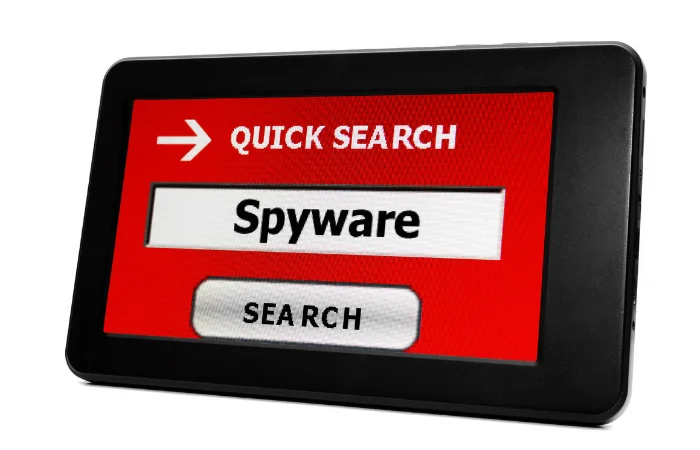
Spyware İçin İşletmelerin Alabileceği Önlemler
Güncel ve Güvenilir Güvenlik Yazılımları
İşletmeler, spyware ve diğer zararlı yazılımlara karşı korunmak için güncel ve güvenilir güvenlik yazılımlarını kullanmalıdır. Bu yazılımlar, işletmelerin bilgisayar sistemlerini tehditlere karşı savunmak ve verilerini korumak için önemli bir rol oynar.
Antivirüs Programları: Güncel bir antivirüs programı, bilgisayarlara bulaşabilecek virüsler, trojanlar, solucanlar ve diğer zararlı yazılımların tespitini ve temizlenmesini sağlar. Örnek olarak, Kaspersky, McAfee, Norton gibi antivirüs programları güvenilir seçenekler arasında yer alır.
Anti-Malware Yazılımları: Anti-malware yazılımları, bilgisayar sistemlerine bulaşabilecek çeşitli kötü niyetli yazılımları tespit etmek ve kaldırmak için kullanılır. Bu yazılımlar, spyware, adware, truva atları ve diğer zararlı yazılımlara karşı koruma sağlar. Örneğin, Malwarebytes, HitmanPro gibi anti-malware yazılımları etkili seçeneklerdir.
Bilinçli Kullanıcı Eğitimi
İşletme çalışanlarına spyware ve diğer zararlı yazılımlar hakkında bilinçlendirme eğitimleri verilmelidir. Bu eğitimler, phishing e-postaları, tehlikeli web siteleri, indirilebilir dosyalar ve sosyal mühendislik saldırıları gibi potansiyel tehlikeler hakkında farkındalık yaratır. Sosyal mühendislik saldırıları, kötü niyetli kişilerin manipülatif taktikler kullanarak kullanıcıları kandırmak ve kişisel bilgilerini veya giriş bilgilerini elde etmek için kullandıkları bir yöntemdir. Bu nedenle, bilinçli kullanıcılar, şüpheli iletişimlerden, sahte web sitelerinden ve güvensiz dosyalardan uzak durma konusunda eğitilmelidir.”
Güvenli İnternet Kullanımı Politikaları
İşletmeler, güvenli internet kullanımı politikaları belirlemeli ve bu politikaları çalışanlara açıklamalıdır. Bu politikalar, işyeri ağının güvenliğini sağlamak için internete erişim, web siteleri ve indirilebilir dosyalarla ilgili kısıtlamalar içerebilir.
Yazılım Güncellemeleri
İşletmeler, işletim sistemleri ve diğer yazılımlar için düzenli güncellemeleri uygulamalıdır. Yazılım güncellemeleri, bilinen güvenlik açıklarını kapatarak spyware’in sistemlere sızmasını önler.
E-posta ve Dosya Filtreleme
İşletmeler, gelen e-postaları ve dosyaları otomatik olarak filtreleyen bir e-posta güvenlik çözümü kullanmalıdır. Bu, potansiyel olarak zararlı içerikleri tespit ederek spyware bulaşmasını önler.
Erişim Kontrolleri
İşletmeler, kritik verilere sınırlı erişim sağlayan güçlü bir yetkilendirme ve kimlik doğrulama sistemi kullanmalıdır. Bu, yetkisiz kişilerin verilere erişimini kısıtlar ve spyware saldırılarını engeller.
Ağ İzleme ve Güvenlik Denetimleri
İşletmeler, ağlarını sürekli olarak izlemeli ve güvenlik denetimleri gerçekleştirmelidir. Bu, anormal aktiviteleri tespit ederek potansiyel spyware bulaşmasını erken aşamada tespit eder.
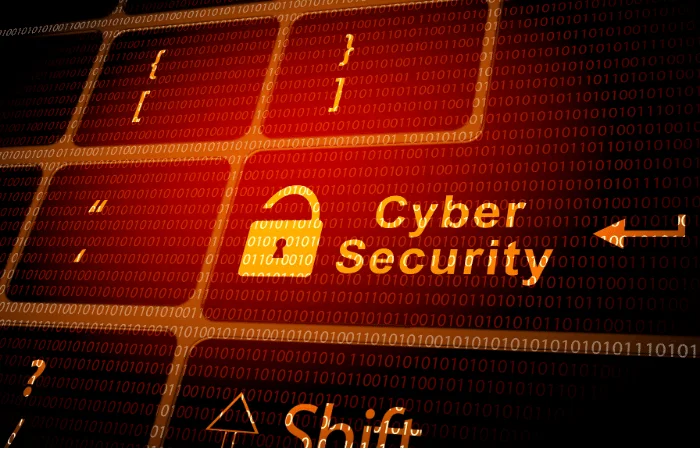
Yazılım ve Uygulama Kontrolü
İşletmeler, çalışanların yalnızca güvenilir kaynaklardan yazılım ve uygulamalar indirmesini teşvik etmelidir. Bu, potansiyel spyware içeren kötü amaçlı yazılımların bilgisayarlara sızmasını önler.
Güçlü Parola ve Kimlik Doğrulama
İşletmeler, güçlü parola politikaları benimsemeli ve çok faktörlü kimlik doğrulama yöntemlerini kullanmalıdır. Bu, yetkisiz erişim girişimlerini engeller ve işletmenin verilerini korur.
İşletme Ağı İçin VPN Kullanımı
İşletmeler, uzaktan erişim sağlamak için sanal özel ağ (VPN) kullanmalıdır. Bu, işletme verilerinin güvenli bir şekilde iletilmesini ve yetkisiz erişimlerin engellenmesini sağlar.
Rutin Güvenlik Denetimleri
İşletmeler, düzenli olarak güvenlik denetimleri yapmalı ve potansiyel güvenlik açıklarını tespit etmelidir. Bu, spyware ve diğer zararlı yazılımların erken tespit edilmesine yardımcı olur.
İşletme İçi İletişim
İşletmeler, çalışanlar arasında etkili bir iletişim sağlamalı ve güvenlik konularını sürekli olarak vurgulamalıdır. Çalışanların potansiyel tehditleri bildirmeleri ve güvenlikle ilgili endişeleri paylaşmaları teşvik edilmelidir.
Güvenlik İzleme ve Olay Yönetimi
İşletmeler, ağlarını ve sistemlerini sürekli olarak izlemeli, güvenlik olaylarını tespit etmeli ve buna uygun bir şekilde yanıt vermeli. Güvenlik olaylarını etkili bir şekilde yönetmek, spyware saldırılarının etkilerini en aza indirir.
Fiziksel Güvenlik
İşletmeler, fiziksel güvenlik önlemleri almalı ve bilgisayar sistemlerini, sunucuları ve veri merkezlerini güvenli bir ortamda korumalıdır. Kilitli kapılar, güvenlik kameraları, alarm sistemleri ve erişim kontrolleri gibi önlemler, spyware saldırılarına karşı koruma sağlar.
Sistem Yedeklemeleri ve Kurtarma
İşletmeler, düzenli olarak sistem yedeklemeleri yapmalı ve veri kaybı durumunda hızlı bir şekilde kurtarma yapabilmek için kurtarma planları oluşturmalıdır. Bu, spyware saldırıları sonucunda veri kaybı yaşanması durumunda işletmenin sürekliliğini sağlar.
İş Ortağı ve Tedarikçi Değerlendirmesi
İşletmeler, iş ortakları ve tedarikçilerle çalışırken güvenlik konusunda dikkatli olmalıdır. Bu ilişkilerde güvenilirlik ve güvenlik standartlarına uyum konularında titiz bir değerlendirme yapılmalıdır.
Güncel Haberlerin ve Tehdit İncelemelerinin Takibi
İşletmeler, güncel güvenlik haberlerini ve tehdit incelemelerini düzenli olarak takip etmelidir. Bu, yeni spyware saldırılarını, güvenlik açıklarını ve savunma yöntemlerini öğrenmek için önemlidir.
Spyware Raporlama ve İnceleme
İşletmeler, spyware saldırılarına maruz kaldıklarında bunları raporlamalı ve incelenmelidir. Bu, saldırıların kökenini ve etkilerini anlamak için önemlidir ve gelecekteki saldırılardan öğrenmek için bir fırsat sunar.
Web Filtreleme
Web filtreleme çözümleri, işletmelerin çalışanlarının internet erişimini denetleyerek zararlı web sitelerine erişimi engeller. Bu filtreleme çözümleri, istenmeyen içerikleri engelleyerek spyware’ın yayılmasını ve kullanıcılara bulaşmasını engeller.
Firewall Kullanımı
Bir firewall, ağınızdaki giriş ve çıkış trafiğini denetleyen bir güvenlik cihazıdır. İşletmeler, hem yazılımsal hem de donanımsal firewall cihazları kullanarak ağlarını koruyabilir. Firewall, yetkisiz erişimleri engeller ve zararlı trafiği tespit ederek önler.
İşletmeler, hem yazılımsal hem de donanımsal firewall cihazlarını kullanarak ağlarını ek bir güvenlik katmanıyla koruyabilir. Yazılımsal firewall, işletim sistemi üzerinde çalışan bir güvenlik uygulamasıdır ve bilgisayarınızın ağ bağlantılarını korur. Donanımsal firewall ise ayrı bir cihaz olarak çalışır ve ağ trafiğini denetler.
SASE Platformu Kullanımı
SASE (Secure Access Service Edge), güvenlik ve ağ hizmetlerini birleştiren bulut tabanlı bir ağ ve güvenlik mimarisidir. Geleneksel ağ güvenliği mimarilerinden farklı olarak, SASE platformu, işletmelere kapsamlı ve ölçeklenebilir bir güvenlik çözümü sunar.
SASE, ağ bağlantısı, web filtreleme, güvenlik duvarı, veri kaybı önleme, sıfır güvenlik duvarı, tehdit zekası ve daha fazlasını içeren geniş bir güvenlik hizmetlerini bir araya getirir. Bu hizmetler, birbirleriyle entegre çalışarak işletmelerin spyware gibi zararlı yazılımlara ve diğer tehditlere karşı daha etkin bir koruma sağlamasını sağlar.
Bulut tabanlı yapı sayesinde, SASE platformu kullanıcıların ve cihazların her yerden güvenli bir şekilde erişebilmesini sağlar. İşletmeler için daha fazla esneklik sunar ve kullanıcı deneyimini iyileştirirken güvenlik önlemlerini de güçlendirir.
SASE platformunun sağladığı avantajlardan biri, trafik analizi ve tehdit tespiti için yapay zeka ve makine öğrenme gibi gelişmiş teknolojilerin kullanılmasıdır. Bu, işletmelerin gerçek zamanlı olarak tehditleri tespit etmesini ve hızlı bir şekilde müdahale etmesini sağlar.
SASE platformu, ağ ve güvenlik hizmetlerini tek bir merkezi yönetim noktasında birleştirir. Bu da işletmelere hem maliyet hem de yönetim açısından avantaj sağlar. Çünkü ağ ve güvenlik politikalarını tek bir konsoldan yönetebilir, daha iyi kontrol sağlayabilir ve zaman kazanabilirler.
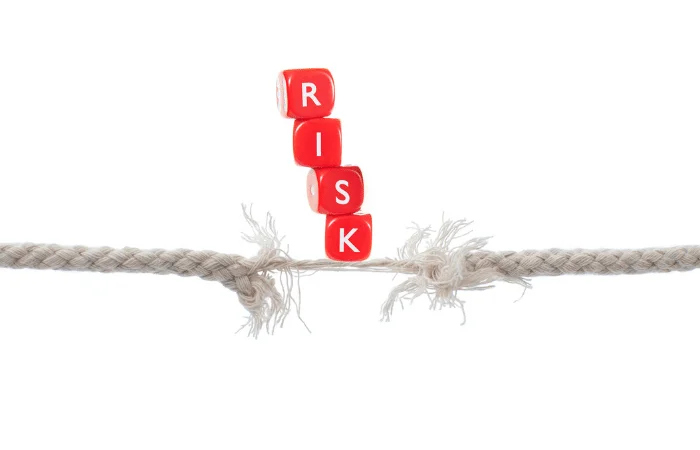
InfinitumIT MDR+ Hizmeti: Siber Saldırıların Önüne Geçiyoruz
InfinitumIT Hotshot MDR takımı, işletmelerin güvenliğini kesintisiz bir şekilde izleyen ve aktif olarak takip eden bir birimdir. 7 gün 24 saat izleme ve takip ile donatılmış olan ekip, gelen alarmlara hızlı bir şekilde aksiyonlar alarak siber saldırıları etkisiz hale getirir. Size endişe duymak yerine, Hotshot takımı gelen alarmların neden oluştuğunu, doğruluğunu ve çözüm önerilerini titizlikle araştırır. Günlük, haftalık ve aylık analiz raporlarıyla işletmenizin güvenlik durumunu detaylı bir şekilde sunarız. InfinitumIT Hotshot MDR hizmeti, işletmenizin güvenliğini sağlama konusunda sizin en güçlü kalkanınız olmayı hedefler. İşletmenizi korumak ve siber saldırıların önüne geçmek için InfinitumIT ile güçlerinizi birleştirin!
7/24 İzleme
InfinitumIT Yönetilen Tespit ve Müdahale (MDR) Hizmeti, CrowdStrike teknolojisini kullanarak ağınızı sürekli olarak izler ve tehlikeleri anında tespit eder. Böylece hızlı bir şekilde müdahale ederek potansiyel hasarı minimuma indirir. Sizlere rahat bir ortamda çalışma imkanı sunar ve 7/24 sistemde kararlılık vaat eder.
İzlenebilirlik
InfinitumIT Yönetilen Tespit ve Müdahale (MDR) Hizmeti, CrowdStrike teknolojisi ile birlikte, ağınızdaki bütün envanteri tek bir panelden yönetilir. Bu sayede herhangi bir zaman kaybetmeden, olası siber tehditlere karşı anında aksiyon alınır. Envanter üzerinden anında ve sürekli yönetilebilirlik sağlar.
Raporlama
InfinitumIT Yönetilen Tespit ve Müdahale (MDR) Hizmeti ile, haftalık, aylık ve günlük raporlar oluşturulur. “Incident” ve “Detection” bazında raporlama, hizmetimizin önemli bir parçasıdır. “Detection” ve “Incident” bildirimleri anında alanında yetkin kişiler tarafından analiz edilerek, kuruma analiz raporu hazırlanır.
Hızlı Aksiyon
InfinitumIT Yönetilen Tespit ve Müdahale (MDR) Hizmeti, siber tehlikelere karşı hızlı aksiyon almayı hedefler. Takımımız, sürekli olarak eğitim alır ve en yeni teknolojileri, yöntemleri kullanır. Hizmetimiz, ağınızdaki potansiyel tehlikeleri takip eder ve olası hasarı en aza indirmek için hızlı bir şekilde müdahale eder.
Evet, spyware zararlı bir yazılımdır. Spyware, bilgisayar sistemlerine veya mobil cihazlara izinsiz bir şekilde sızarak kullanıcının aktivitelerini izler, kişisel bilgileri çalar ve çeşitli zararlı eylemlerde bulunabilir. Bu tür yazılımlar genellikle kullanıcıların haberi olmadan çalışır ve gizlice veri toplar veya bilgisayarın performansını etkileyebilir. Bu nedenle, spyware bulaşmasını önlemek ve zararlarını en aza indirmek önemlidir.
Casus yazılım (Spyware), kullanıcının haberi olmadan bilgisayar sistemine veya mobil cihaza yerleştirilen ve kullanıcının faaliyetlerini izleyen bir tür yazılımdır. Casus yazılımlar, kullanıcının tuş vuruşlarını kaydedebilir, ekran görüntüleri alabilir, internet tarayıcı geçmişini izleyebilir, şifreleri çalabilir veya kişisel bilgileri ele geçirebilir. Bu yazılımlar genellikle kötü niyetli kişilerin veya kuruluşların bilgisayar korsanlığı veya kişisel bilgi hırsızlığı gibi amaçlarını gerçekleştirmek için kullanılır.
Telefonunuzda casus yazılım olup olmadığını anlamak zor olabilir, ancak bazı belirtiler size ipucu verebilir. İşte telefonda casus yazılım olduğunu gösteren potansiyel işaretler:- Pil Ömründe Ani Azalma: Telefonunuzun bataryası normalden çok daha hızlı boşalıyorsa, casus yazılımın arka planda çalışıyor olması mümkündür.- Beklenmedik Veri Kullanımı: Telefonunuzda normalden çok daha fazla veri kullanımı görüyorsanız, casus yazılımın arka planda veri aktarımı yapabileceği ihtimalini düşünebilirsiniz.- Anormal Cihaz Isınması: Telefonunuz normalden daha sık ve belirgin şekilde ısınıyorsa, casus yazılımın arka planda yoğun işlem yapması nedeniyle olabilir.- İlgisiz Mesajlar veya Uyarılar: Telefonunuzda alakasız veya garip metin mesajları, bildirimler veya uyarılar görüyorsanız, casus yazılımın etkin olabileceği bir işaret olabilir.- Sıra Dışı Sesler veya Görüşmeler: Telefonunuzdan garip sesler, arka plan sesleri veya izinsiz görüşmeler geliyorsa, bir casus yazılımın telefonunuzda aktif olabileceği ihtimalini değerlendirebilirsiniz.
Spyware, genellikle kullanıcının farkında olmadığı şekilde yayılır. Bunun için yaygın yöntemler arasında kötü amaçlı e-posta ekleri, sahte indirme bağlantıları, reklamlar, izinsiz yazılımlar ve güvenlik açıklarından yararlanma bulunur. Kullanıcılar bu tür tehlikelerle karşılaşmamak için dikkatli olmalı ve güvenilmeyen kaynaklardan indirme yapmaktan kaçınmalıdır.
Spyware, kullanıcının bilgisayarında gizlice faaliyet göstererek kişisel bilgileri çalmak, tarayıcı geçmişini izlemek, tuş vuruşlarını kaydetmek ve diğer istenmeyen aktiviteleri gerçekleştirmek için tasarlanır. Bu, kişisel gizlilik ihlallerine, veri kaybına, bilgisayarın yavaşlamasına ve istenmeyen reklamların görünmesine yol açabilir. Spyware tespit etmek için güncel bir antivirüs ve anti-malware programı kullanmak, sistemi düzenli olarak taratmak ve anormal aktiviteleri izlemek önemlidir.
Spyware saldırılarına karşı korunmak için işletmeler, sürekli olarak güncel kalmalı ve en yeni trendleri takip etmelidir. Bu kapsamda, Zero Trust güvenlik yaklaşımı son zamanlarda popülerlik kazanmıştır. Zero Trust, her kullanıcının ve cihazın otomatik olarak güvenilmez kabul edildiği ve erişim kontrollerinin katı bir şekilde uygulandığı bir güvenlik modelidir. Bu yaklaşım, içeriden ve dışarıdan gelen tehditlere karşı daha etkili bir savunma sağlamayı hedefler. Ayrıca, yapay zeka ve makine öğrenimi gibi teknolojilerin spyware tespit ve engelleme süreçlerinde kullanımı da yaygınlaşmaktadır. Bu teknolojiler, büyük veri analizi yaparak anormal davranışları tespit etme ve sıfır gün saldırılarını tanımlama konusunda daha hızlı ve hassas sonuçlar sağlar. Son olarak, bulut tabanlı güvenlik hizmetleri (Cloud-based Security Services) de önemli bir trenddir. Bu hizmetler, ağ trafiğini izler, tehditleri analiz eder ve işletmelere güvenlik açıklarını kapama ve siber saldırılara karşı koruma sağlama konusunda yardımcı olur. İşletmeler, bu trendleri takip ederek spyware saldırılarına karşı daha güçlü bir savunma sağlayabilirler.
